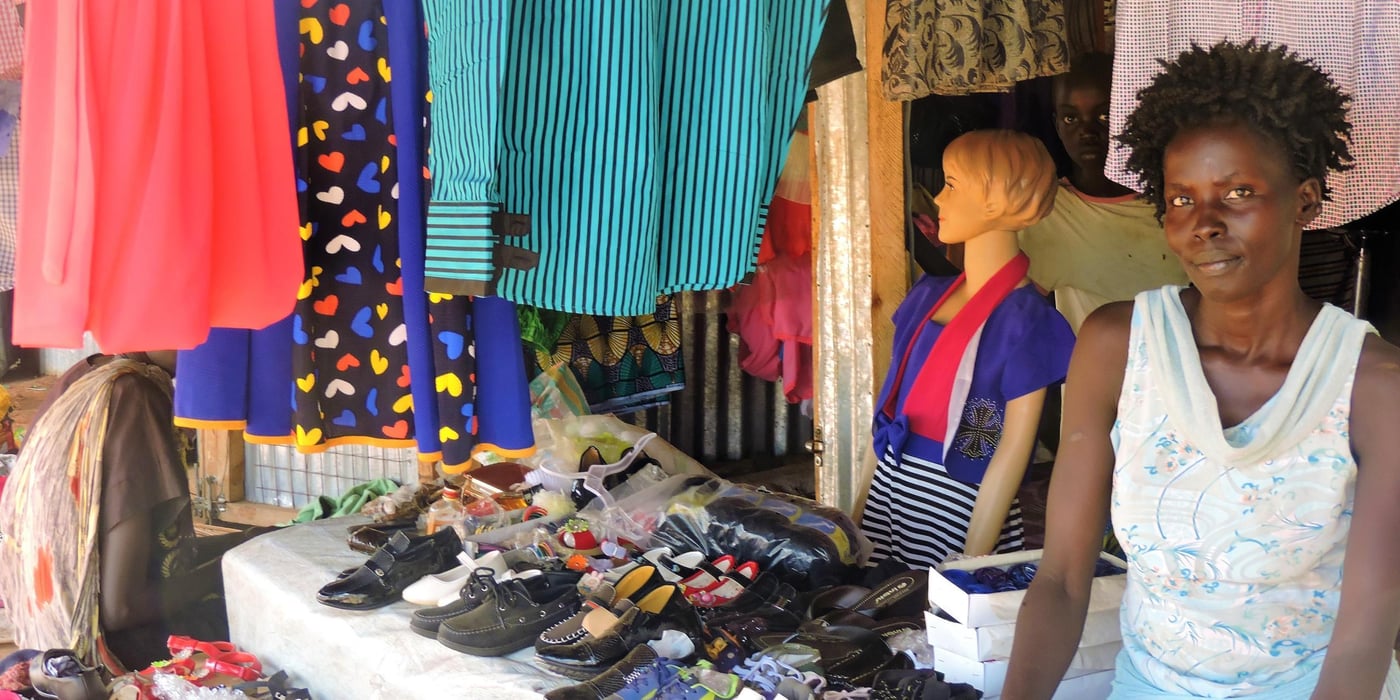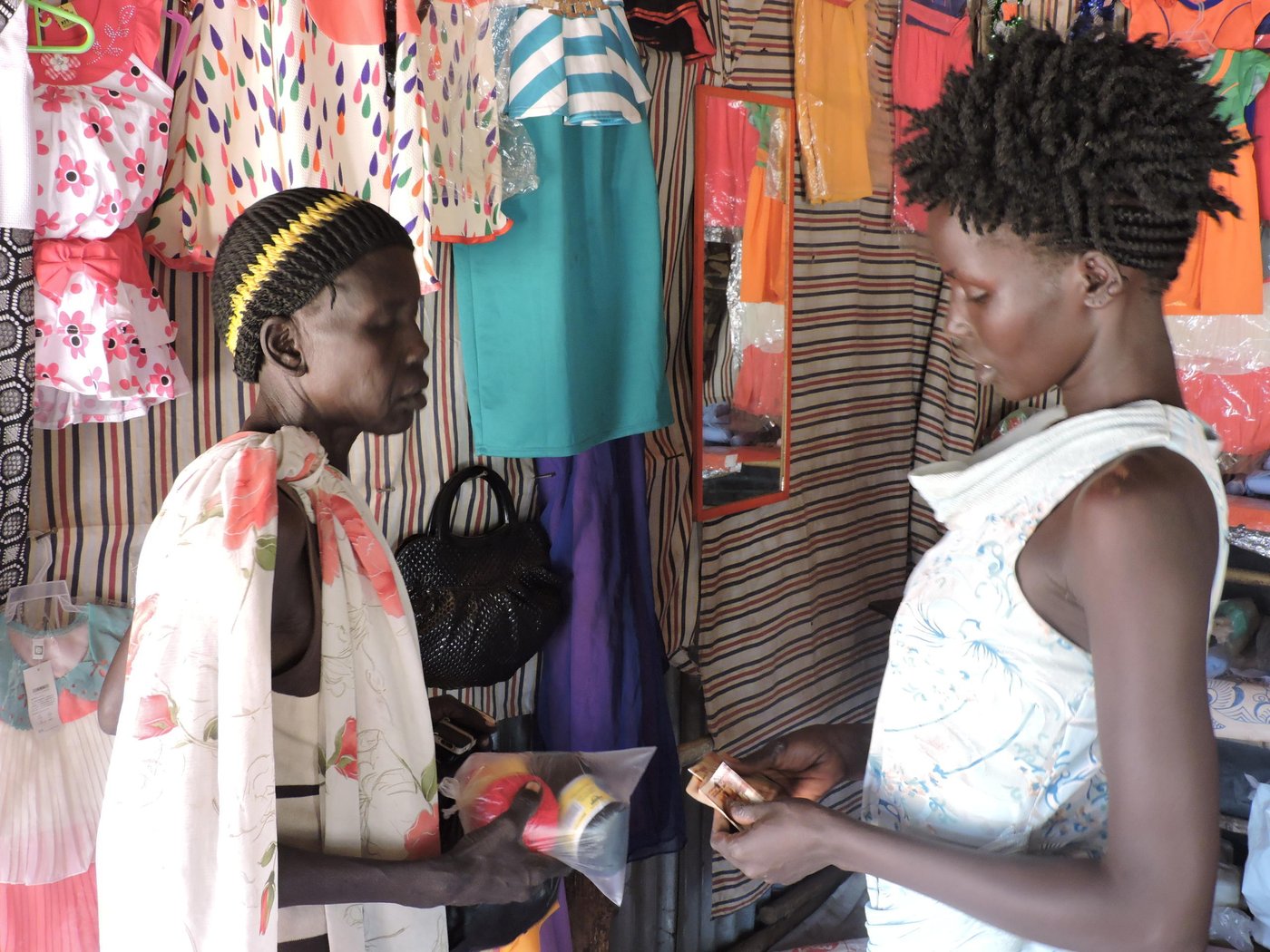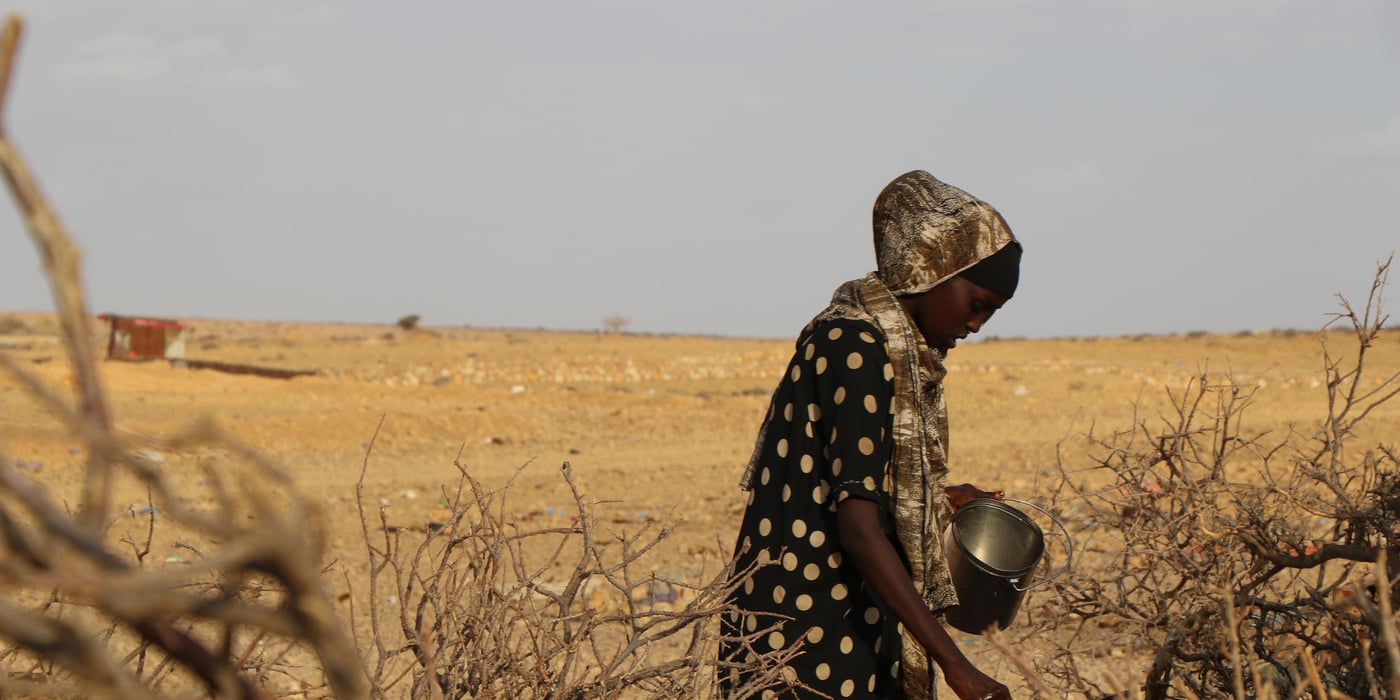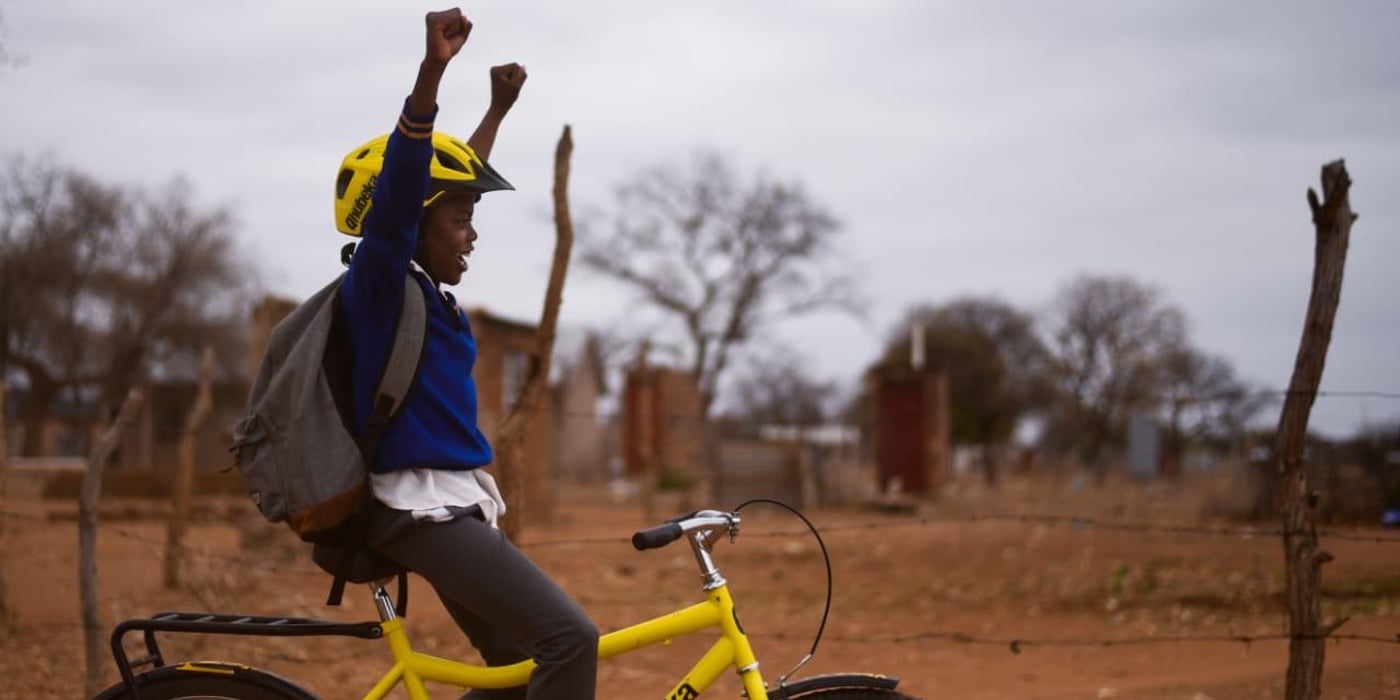
“Sometimes, when I sleep, I dream about new business ideas. I imagine starting a rock-crushing business for the construction people, or a motorcycle repair shop,” says Nyalual, 30, a South Sudanese refugee in Uganda’s Bidibidi refugee camp, and mother of four children.
With a start-up grant and vocational training from the Norwegian Refugee Council (NRC), she formed a women’s group, and together, they started a business.
The eight women have worked hard to get where they are today: the shop is now one of the best stocked in the entire camp.
Clothes and mangoes
Nyalual sells clothes, shoes and cosmetic products and serves cold juice to her thirsty costumers. She has bought a small juice mixer that she is using to blend mangoes into juice syrup. The northern region of Uganda is a breadbasket for mangoes. During the mango season, trees produce tonnes of healthy fruits, exceeding the local market demand by far.
Forced to flee from violence
In 2016, Nyalual’s father died when an armed group started shooting randomly at people in a market place in the South Sudanese town of Bor, located in Jonglei State. Her mother Ayan, 55, survived the attack.
The fighting between government forces and rebels caused deaths and devastation everywhere. “Hunger and famine made the situation worse. People were too afraid to go to their farms to cultivate their crops because they feared meeting rebels,” Nyalual recalls.
She fled together with her mother and extended family to Uganda.

Business women getting together
The family ended up in Bidibidi refugee settlement, close to the South Sudanese border, where NRC is offering vocational training to refugees. After Nyalual attended tailoring and dress-making courses, she formed Kuancho women’s group, bringing together 8 business women. The group was granted a start-up capital of 3.7 million Ugandan shillings (962 US dollars). The women used the capital to open a shop at Bidibidi centre, and bought clothing materials, beauty products and shoes that they could sell. The group members also bought a second sewing machine through a loan so that they can make new clothes and provide refugees with tailoring services, using the income to repay their loan.
“When refugees are given the right tools and opportunities, they cease to become a burden to the host country’s economy. Instead, they turn around and bring new ideas that thrive and turn previously sleepy villages into dynamic business hubs,” says Enock Mambili, NRC’s Area Manager in Uganda.
The women take turns to run the business; Nyalual supervises the shop on Tuesdays. Occasionally, she offers to help when another group member has an emergency.
“Sometimes a child falls sick and one of the women has to take the child to hospital, or there could be a problem in the settlement and someone has to attend tribunal matters,” she says.
On their days off, the women are usually out in the fields doing farm work.
On Sundays, Nyalual, together with her mother and children, attend church services at St. John’s Church in the refugee settlement. She prays for her business to grow. “I usually pray for strength and the spirit of honesty so that my group members and clients can continue to trust me,” she says.




